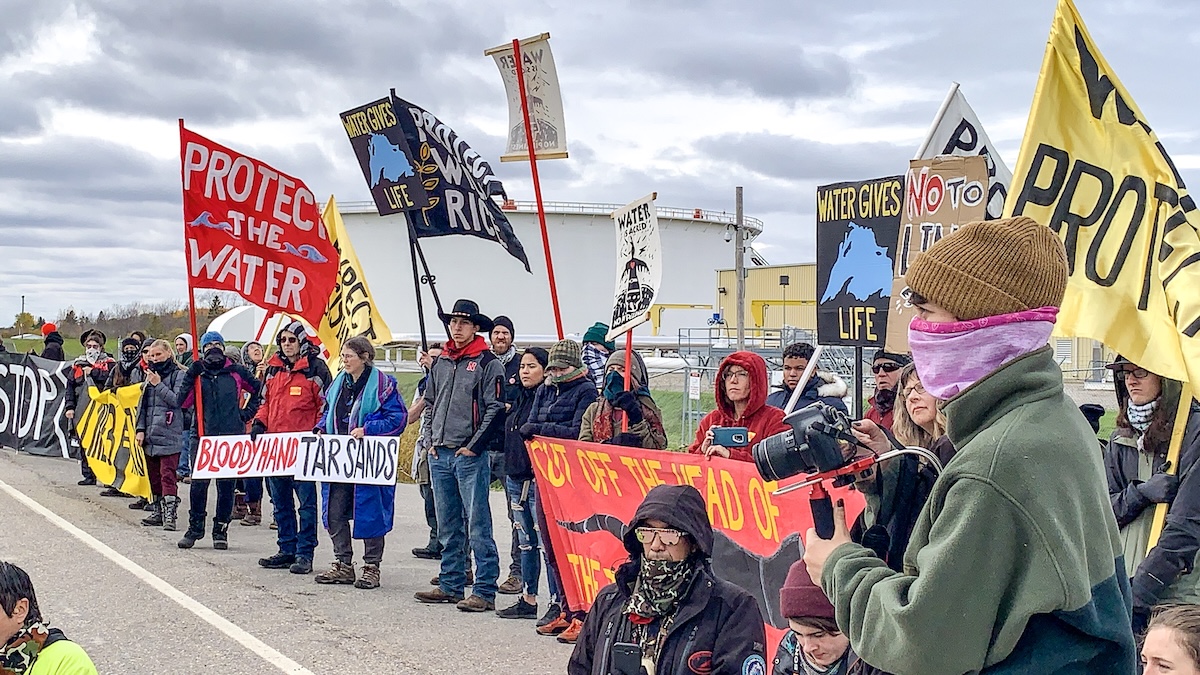Peace House opposes any form of military intervention in Venezuela for the following reasons.
As an organization whose primary mission is to promote programs of peace and justice, we cannot support military intervention that is almost certain to result in the deaths of many Venezuelans, physical and psychological injury for life to many others, and enormous property destruction. Such an event would reinforce the idea that might makes right.
Military intervention into Venezuela is almost certain to result in another protracted and bloody war and an open-ended “need” for U.S. military and other forms of involvement. Venezuela is a large, populous, and rugged country with a large portion of devoted followers of the Maduro government—people whom our news media never mention. Many of these people are among the poorest in the country, ones who would presumably be the hardest hit by the economic crisis. Many of them support Maduro because they believe that his government has, for all its faults, paid attention to them.
The Venezuelan people are anything but united in their desire for U.S. intervention. Many Venezuelans who are severe critics of Maduro do not want the United States to intervene. We do not want to, nor do we have a right to become involved in a civil war in Venezuela.
We are skeptical of the one-sided media coverage of the Venezuelan situation. Time and time again in our past, our news media have followed the story laid out by our government officials, only to find that much of it was either entirely false or deliberately one-sided so as to promote an agenda that our government was intent of executing. For example, coverage of the Venezuelan people almost never includes the voices of supporters of the Maduro government even though there are still many. Also absent from most news coverage are any of the positive steps the Maduro government (and the Chavez government before him) has taken to improve the daily lives of many Venezuelans. Some of these measures have been documented by international organizations, but we do not hear about them unless we take time and energy to probe deeper. Media and State Department attempts to depict the 2016 election of Maduro as fraudulent and irregular fail to mention reports that important international election monitors, including the Carter Center, judged that election to be generally fair and free from fraud.
We reject the idea that to oppose U.S. intervention means we must support Maduro’s government. We recognize the failings of that government. But the fate of Maduro and his government is NOT the prerogative of the United States or any other outside force. It is the sole right of the Venezuelan people to resolve their political conflicts. Many of those people want to do so but without U.S. intervention. In Latin America, including Venezuela, there is a long and often bitter history of U.S. intervention and its results, a history that is never far from the minds of many Latin Americans.
The United States has had economic sanctions in place against Venezuela for some time. Among other effects, these restricted the revenue that Venezuela derives from its sale of oil, the largest single source of national income, thus contributing to the current economic crisis in the country. While Maduro’s government can be accused of mistakes and mismanagement of the economy, the U.S. policy of squeezing the country’s income has contributed greatly to the current economic crisis. Now our government suddenly produces tons of humanitarian aid at Venezuela’s borders to address the crisis that it helped create and that it blames entirely on Maduro. Having helped create the crisis, we now ride in to rescue people from the crisis. While the U.S. offers a few million dollars in aid, it is like the Trojan horse, almost certain to come with demands, such as ongoing U.S. military presence in Venezuela and unrestricted opening to U.S. corporate investment, that will not be accountable to the Venezuelan people and will make a mockery of any claims of national sovereignty. We have seen this pattern in Latin America already in countries such as Honduras.
We recall the statements by our President and others that would very much like to ensure our unimpeded access to Venezuelan oil, the largest known oil reserves in the world. We do not want Venezuela’s oil at the cost of many innocent lives. We do not condone warfare and intervention in order to own the oil and other natural resources of another country. We support the right of the Venezuelan people to determine how their land is used and to address corruption and mismanagement in their own country without heavy-handed imposition of outside force by the U.S. or any other power.
We are well aware that Elliot Abrams, recently appointed U.S. point man on Venezuela, has a long history of organizing and overseeing policies and practices that have brought death and misery to many thousands in Latin America, including the so-called Iran-Contra affair that brought civil conflict to Nicaragua and killed (by conservative estimate) 30,000 Nicaraguans, as well the massacre of thousands of Salvadorans and Guatemalans in the early 1980s, events that Abrams staunchly defended. We wonder what he will do with Venezuela?
In Venezuela there are legal mechanisms and proposals to resolve the current internal political standoff, including a constitutionally approved provision for a referendum to review Executive and national Assembly structures and powers when there is a stalemate between the two. This would allow the government and the Venezuelan people to engage a process of self-determination rather than to cede to U.S. intervention. Additionally, we understand that there have been various proposals for a negotiated resolution to the internal political crisis in Venezuela. Mexico, Uruguay, and Pope Francis and the Vatican have all been mentioned as possible outside sponsors or mediators. We believe that these paths should be more vigorously pursued instead of rushing quickly to intervention to ease a crisis that our own government has helped to manufacture.
We do not want the United States to use military force—or for that matter economic punishment—against the Venezuelan people, or any people, in our name.


